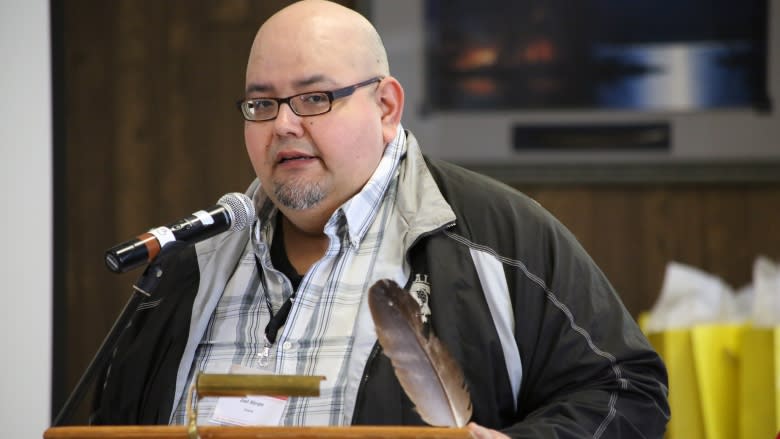Southern Ontario First Nations electing new grand chiefs
Southern Ontario Aboriginal leaders are in Leamington this week to elect a new grand chief who will lead seven First Nations over the next three years.
Candidates for grand and deputy grand chief announced their bids for leadership of the Association of Iroquois and Allied Indians during the annual general assembly Monday.
Delegates from each nation will cast ballots Tuesday at the Caldwell First Nation office. On Wednesday, members and the new leaders will discuss issues of education, health and environmental reform.
The elected leaders play an important political role for the seven nations, particularly when it comes time to working with Canadian governments over land and treaty issues, said Randall Phillips, Chief of the Oneida Nation of the Thames, who is also running for deputy grand chief.
"They're very important positions. The grand chief and deputy grand chief have access to ministers, have access to senior government officials," he said. "I want to be able to use those processes and focus on our community issues."
Diverse issues
Three candidates are in the running for grand chief: Chris McCormick of the Batchewana First Nation, Murray Maracle of the Mohawks of the Bay of Quinte, and Joel Abram of the Oneida Nation of the Thames.
Despite some of the long-standing issues First Nation communities have faced for decades, Maracle stressed the importance of recognizing the progress Aboriginal leaders have made when it comes to negotiating land or even smaller accomplishments, such as getting roads paved in some communities.
"We don't often give ourselves the opportunity to acknowledge what we've done," he said. "There's a lot more to do yet, but we are still here to make that fight."
All three candidates highlighted the importance of protecting Aboriginal culture and languages in their communities.
Opioid addiction, engaging Aboriginal youth and reviewing technologies available in First Nation communities are several of the issues Abram wants to tackle over the next three years.
"There are a lot of things we can do to get practical solutions in our communities," he said. "That's something I'd like to concentrate on as grand chief."
McCormick has served twice as deputy grand chief and another term as grand chief. He wants to have more First Nation programs managed and delivered by Aboriginal people.
Too many people who are qualified for the health and education programs are not being allowed to take on the important roles, he explained.
"There are a lot of professional native people now who are quite competent and able to deliver our own programs," McCormick said. "I think it's time we cut those apron strings and let First Nations, who know best what to do for their people, are in positions to deliver programs in their communties."



